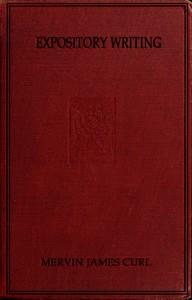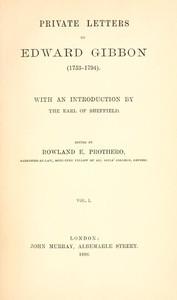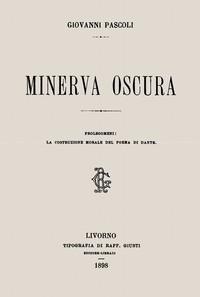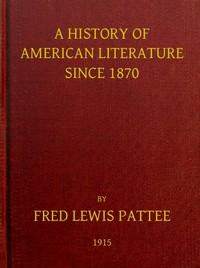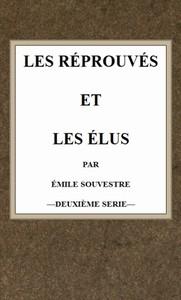|
|
Read this ebook for free! No credit card needed, absolutely nothing to pay.Words: 163220 in 41 pages
This is an ebook sharing website. You can read the uploaded ebooks for free here. No credit cards needed, nothing to pay. If you want to own a digital copy of the ebook, or want to read offline with your favorite ebook-reader, then you can choose to buy and download the ebook.

: Expository Writing by Curl Mervin James - English language Rhetoric; Exposition (Rhetoric)@FreeBooksWed 07 Jun, 2023 INDEX 305 EXPOSITORY WRITING THE NATURE AND MATERIAL OF EXPOSITION "The Anglo-Saxons," Emerson said, "are the hands of the world"--they, more than any other people, turn the wheels of the world, do its work, keep things moving. Without lingering to quarrel with Emerson, or to justify him, we may safely assert that Expository Writing is the hands of literature. In a world which man even as yet only slightly understands, surrounded as he is by his fellows who constantly baffle his intelligence, and shut up within the riddle of himself, Exposition attempts to explain, to make clear, to tear away the clouds of mystery and ignorance. Exposition attempts to answer the endless curiosity of man. "What is this?" man asks, of things and of ideas. "Who are you?" he addresses to his fellows. "How did this originate, what caused it, where is it going, what will it do, how is it operated?" he repeats from birth to grave. Perhaps the most interesting question in the world is the never-ending "What does this mean to me, how does it affect me, how can I use it?" These are the questions--and there are more of them--which Exposition tries to answer. Obviously, in making the answers the writing will often be garbed in the sack suit of business, will sometimes roll up its sleeves, will pull on the overalls or tie the apron. Then it may explain the workings of a machine, the wonders of a printing press, or may show the mysteries of Congressional action, or the organization of a department store, or even tell how to bake a lemon pie. But it may also appear in the opulence of evening costume, and criticize the ensemble of an orchestra, discuss the diplomacy of Europe, address us in appreciation of the Arts. It may assume the fine informality of the fireside and give us of its most delightful charms in discussing the joys of living and learning, the whimsicalities of the world. In any case it will be answering the endless curiosity of man. It would not be rash to say that more expository thinking is done than any other kind of mental activity. The child who dismantles a clock to find its secret is doing expository thinking; the official, of however complicated a business, who ponders ways and means, is trying to satisfy his business curiosity; the artist who studies the effect of balance, of light and shade, of exclusion or inclusion, is thinking in exposition; politicians are ceaselessly active in explaining to themselves how they may, and to their constituents how they did. We cannot escape Exposition. The question then arises, since this form of writing is always with us how can we make it effective and enjoyable? All writing should be interesting; all really effective writing does interest. It may not be required that every reader be interested in every bit of writing--that would be too much to hope for in a world where sympathies are unfortunately so restricted. To peruse a directory of Bangkok, if one has no possible acquaintance in that city, might become tedious, though one might draw pleasure from the queer names and the suggestions of romance. But if one has a lost friend somewhere in New York, and hopes that the directory will achieve discovery, the bulky and endless volume immediately takes on the greatest interest. Lincoln, driven at length to write a recommendation for a book, to escape the importunities of an agent, wisely, whimsically, wrote, "This is just the right kind of book for any one who desires just this kind of book." Wide though his sympathies were, he recognized that not every one enjoys everything. The problem of the writer of exposition is to make as wide an appeal as he can. Interest in reading is of two kinds: satisfaction and stimulation. And each of these may be either intellectual or emotional or both. The interest of satisfaction largely arises when the questions which the reader brings with him to his reading are answered. A reader who desires to know what is done with the by-products in a creamery, where the skim milk goes to, will be satisfied--and interested--when he learns the complete list of uses, among them the fact that skim milk is largely made into the white buttons that make our underclothing habitable. The reader who leaves an article about these by-products with the feeling that he has been only half told is sure to be dissatisfied, and therefore uninterested. In the same way, when a reader picks up an article or a book with the desire to be thrilled with romance or wonder, to be taken for the time away from the business of the world, to be wrenched with pity for suffering or with admiration for achievement--in other words, when a reader brings a hungry emotion to his reading--if he finds satisfaction, he is interested. The interest of stimulation may include that of satisfaction, but not necessarily. It is the interest that drives a person to further thinking or acting for himself, that loosens his own energies and makes him aware of desire for satisfaction that he did not know he had. A reader may, for example, peruse an editorial in a daily paper and find a complete array of facts, setting forth in detail the subject, and may be satisfied about the subject. He may read another editorial which will not leave him cold, indifferent, but will set his brain to churning with ideas, or may even make him clap on his hat and start forth to change things in the world. The second editorial has given him the interest of stimulation. Writing that makes the interest of stimulation is the writing of power: to the mere satisfaction of hunger, such as one can get from eating dry oatmeal, it adds the stimulation, the joy in life that a fragrant cup of coffee would add to the oatmeal. Exposition that satisfies is adequate; that which stimulates is powerful. Obviously, some expository writing would suffer from being filled with the power to rouse the reader. Much legal writing must be addressed to the intellect alone; often the entrance of stimulation, the rousing of the emotions, will destroy the chance for justice. Obviously, again, some subjects can be treated to contain both kinds of interest: an account of the devastation of northern France may be as cold as a ledger in its array of facts which are to be added; it may also be so treated as to rouse a vitriolic hatred for the government that caused such devastation to be made. Each treatment is allowable, and each necessary for a perfectly proper purpose. Let us admit, without debate, that much expository writing is stupid. Why is it thus? Largely for two reasons: the writer has not made his material mean anything to himself, and he has not made it significant for his reader. In writing exposition there is no place for him who draws his pen along like a quarry slave who is soon to be scourged to his dungeon and does not care for anything. A person who finds no interest in his subject should do one of two things: consult a physician to see if his health is normal so that he may expect reasonably vivid reactions to life and things; or choose a new subject. Interest, in other words, enters at the moment when the writing becomes related vitally to human beings, and not until that moment. Why do students enjoy reading the writings of William James? Simply because the author made his facts relate to himself and to everybody else. If a writer feels like saying, "I don't see anything interesting in this!" and yet he feels duty pointing a stern finger at composition, he should examine the subject more nearly, should see if it does not in some way affect him, does not present a front that he is really concerned with. Suppose, for example, that the task presents itself of accounting for the use of skim milk, and suppose that the writer thinks skim milk of all things the stupidest. Well, buttons, they say, are made from it--but who cares what buttons are made from; their purpose is to hold clothes together, and that's all! But wait a bit: here are some hundreds of gallons of skim milk, from which thousands of buttons can be made. Without the milk, the buttons will be cut from shells, perhaps, at a much larger cost. Ah, the pocketbook is affected, is it--well, let's have the milk used, then. And when one stops to think of it, is it not remarkable that from a soft thing like milk a hard thing like a button should be made? Isn't man, after all, rather ingenious? Who in the world ever thought of milk buttons? Some such process the mind often passes through in its approach to a subject. At length it finds interest, and then it can write--and not before. Here is the difference, then, between being a dumb beast of a reporter of facts, and a free agent of an interpreter. Some facts, to be sure, are in themselves so startling that mere report is sufficient. Slight comment is needed to horrify an audience at Turkish atrocities in the war. Perhaps comment would even weaken the effect. The terrible poignancy of such facts so fires the imagination that more is perhaps positively harmful. Many facts are not thus immediately translated into human experience. At first thought the fact that a new hotel will be supplied with indirect lighting seems a mere fact of trade: instead of ordering hanging chandeliers of one kind, the builder will order another kind. But thought of more fully, this fact takes on both the interest of satisfaction and that of stimulation: why did the builder decide to install the indirect system? and what will the effect be? Imagining one's self in that hotel at the end of a long and bewildering journey, with nerves on edge and eyes aflame with dust, will relate the fact of choice at once to human feelings and needs--and the subject is interesting. A reader can be made to understand the workings of the engine in a super-six automobile, and also to feel the power of it; to understand a cream separator and also to thrill to the economy of time and strength which it brings; to understand a clarinet and also to rouse to the beauty of its voice; to understand an adding machine and also to marvel at the uncanny weirdness of the invention. The writer interprets as soon as he brings his subject into relation with human life and shows its real value. Free books android app tbrJar TBR JAR Read Free books online gutenberg More posts by @FreeBooks
: Private Letters of Edward Gibbon (1753-1794) Volume 1 (of 2) by Gibbon Edward Sheffield Henry North Holroyd Earl Of Author Of Introduction Etc Prothero Rowland E Rowland Edmund Baron Ernle Editor - Great Britain Intellectual life 18th century; Gibbon Edwar@FreeBooksWed 07 Jun, 2023

: Minerva oscura Prolegomeni: la costruzione morale del poema di Dante by Pascoli Giovanni - Dante Alighieri 1265-1321. Divina commedia; Dante Alighieri 1265-1321 Criticism and interpretation IT Letteratura@FreeBooksWed 07 Jun, 2023
|
Terms of Use Stock Market News! © gutenberg.org.in2025 All Rights reserved.

